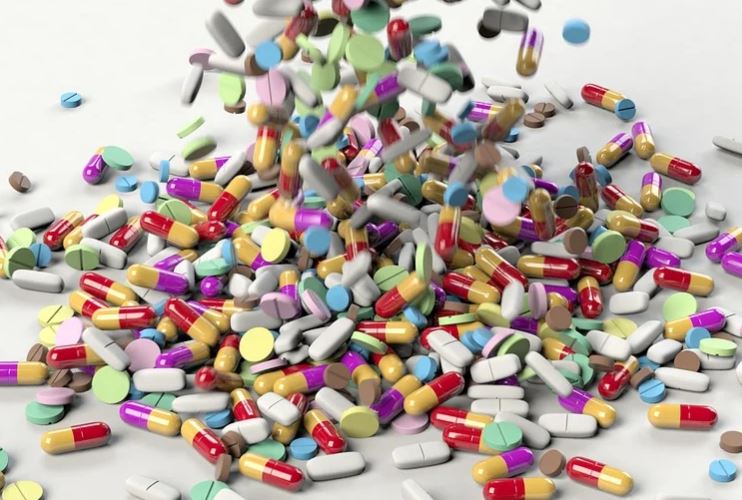Trust is the cornerstone of the medical profession. When we get sick, we believe doctors have our best interests in mind. We hope that the drugs we’re prescribed and bought will make us better, not worse. And, for all intents and purposes, they do.

However, this is not always the case. Counterfeit medicines are a global problem that has affected hundreds of thousands of people around the world, especially in developing countries that lack strong regulatory and enforcement structures. Various reports on counterfeit medical devices indicate that China and India are the leading producers of counterfeit medical devices and medicines.
A more transparent global pharmaceutical supply chain is urgently needed and blockchain technology could be the solution. The market for counterfeit medicines is growing rapidly. Revenues from the global illicit trade in counterfeit medicines could reach $75 billion to $200 billion per year, according to estimates from the U.S. Department of Commerce. The industry is highly profitable.
Counterfeit drug trade rages in Africa
The manufacture and sale of counterfeit drugs is estimated to be 10 to 25 times more profitable than the opioid trade. Counterfeit drugs have proliferated so rapidly that, according to the World Customs Organization’s anti-counterfeiting and anti-piracy coordinator, “there may be more counterfeit than genuine drugs on the market.”
The scourge of counterfeit drugs is particularly acute in developing countries. The World Health Organization (WHO) estimates that “1 in 10 medicines in circulation in low- and middle-income countries are unsafe or counterfeit,” from flu vaccines to cancer treatments. Globally, there are approximately 200,000 preventable deaths each year due to ineffective antimalarial drugs. According to recent WHO estimates, substandard and counterfeit drugs could be responsible for 116,000 malaria deaths per year in sub-Saharan Africa alone.
One analysis found that between 72,000 and 169,000 children die each year from counterfeit antibiotics in these countries. Counterfeit drugs sometimes make headlines, such as when more than 1,000 people suffered symptoms of poisoning and were hospitalized after consuming adulterated drugs in the Democratic Republic of Congo in November 2017.
The most affected countries in Africa are Nigeria, Benin, Kenya, Mauritania, Togo, Ivory Coast, Burkina Faso, Senegal and Mali.
Fake online Pharmacies
The increase in the number of counterfeit medications is related to the overall increase in people using the Internet to purchase products, especially among those using the Internet for diagnosis and prescriptions. This practice can lead to people buying medications that are ineffective; medications that normally require a prescription; or buying what they think are legitimate medications but are actually counterfeit.
The blockchain: a solution for the pharmaceutical supply chain
Distributed ledger technologies, including blockchain, which records transactions in a decentralized, immutable and transparent system, could help combat this serious problem. According to the World Bank Group report, drug traceability could be improved by using a distributed digital ledger to “track pharmaceutical raw materials and finished products from manufacturer to end user.”
The blockchain can serve as a platform for sharing information between multiple databases in the supply chain and allow different parties to verify the authenticity of transactions entering the ledger. Together, these features could help prevent drugs that do not come from legitimate manufacturers from entering the pharmaceutical supply chain. In theory, a pharmaceutical blockchain would make it impossible to counterfeit a drug or exchange legitimate drugs for counterfeit ones.
Security is the most important feature of blockchain technology, which is useful for drug traceability. Each new transaction added to a block is immutable and time-stamped, which makes it easier to track a product and ensures that the information cannot be altered. A blockchain can be public or private.
To ensure authenticity and traceability of medicines, companies registering a product on the blockchain must be trusted. Therefore, only private blockchains controlled by a central entity make sense to ensure that counterfeit drugs are not registered. Therefore, a company’s access to the “drug chain” would be proof of the authenticity of the drugs produced.
Pharmaceutical companies decide which actors in the supply chain act as miners.
They can be manufacturers, distributors, or retailers. Depending on their position in the supply chain, each person has different rights: laboratories can register drugs, while wholesalers can only verify transactions. When a drug is manufactured, a ledger is created that contains all relevant information about the product.
Each time the drug is passed from one entity to another (e.g., from manufacturer to distributor), the information is stored in blockchains, which facilitates tracking of the drug and records information about the transactions, such as the date, time, and price of the transaction. Medicines are verified via QR codes and serial numbers. As a result, the possibility of obtaining a different package than the one recorded in the blockchain for the pharmaceutical product is virtually non-existent.
Blockchain’s potential to combat counterfeit drugs has attracted the attention of pharmaceutical companies and industry leaders. However, challenges remain. Those hoping to develop blockchain projects in the pharmaceutical industry, from pilot projects to long-term solutions, face an immediate hurdle: designing a sustainable business model that will fund the implementation of the solution and create an incentive structure.
This is especially important for pharmaceutical companies operating in countries where compliance models are not strictly regulated.
Tracking the drug chain using blockchain requires recording and time-stamping the transfer of goods at each point in the supply chain. This requires significant effort and resources, resulting in additional costs.
Most believe that pharmaceutical manufacturers should bear the cost of implementation and maintenance, with only 30% supporting the idea of shared implementation. Currently, funding for blockchain-based track-and-trace systems remains uncertain.
Many pharmaceutical companies are currently exploring the use of blockchain in the supply chain to meet Drug Supply Chain Security Act requirements more easily, efficiently, and cost-effectively.
This is not the case in countries where government regulation of counterfeit drugs is non-existent or poorly enforced. In these cases, the various stakeholders are less likely to align their interests in favor of blockchain adoption in pharmaceutical supply chains.
It is important to explore incentive mechanisms beyond compliance to better align the interests of manufacturers, wholesalers, and pharmacies to support blockchain adoption in the pharmaceutical industry. Allowing consumers or watchdog groups to track the history of purchased medicines to ensure their authenticity would have a significant positive impact on restoring trust in the pharmaceutical industry and help create a more transparent and efficient pharmaceutical ecosystem that shuts out counterfeiters.
Reducing health risks
The blockchain consists of a network of certified parties. This means that the drugs come from reputable pharmaceutical companies that produce authentic drugs according to industry standards. This keeps patients safe because the medications they are taking are also safe.
Lower costs
Counterfeit drugs increase costs because they do not contain the active ingredient needed to treat the disease. However, genuine medicines work as they should and therefore cure patients in time.
Faster ordering
Blockchain makes the process of finding reliable pharmaceutical products easier and faster. Moreover, a pharmaceutical company can see on the blockchain which carriers are available for immediate delivery.
Final Thoughts
The fight against counterfeit drugs may seem difficult, but with the implementation of blockchain in the pharmaceutical supply chain, it can be won. In an industry where it is difficult to know who to trust and who not to trust, blockchain builds trust. Its ability to secure pharmaceutical supply chains is just one part of how this technology will transform the entire healthcare industry.
Reducing the entry of counterfeit drugs into the market will bring critical benefits to the world. However, the pharmaceutical industry has a history of not taking any risks.
Therefore, blockchain-based supply chain solutions will likely have to prove their value in other industries. Once they do, pharmaceutical manufacturers will begin to integrate the technology into their supply chains.



